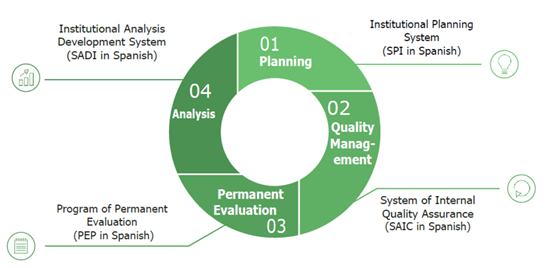Quality has been part of the strategic vision of the Universidad Autónoma de Chile since its beginnings and is considered a transversal axis that permanently permeates all its institutional work. In this perspective, the University must respond to the growing demands and requirements of key stakeholders that interact with its university community, including regulatory bodies, the socio-productive sector, social organisations, national and international higher education institutions, employers and graduates, to mention some of the most relevant.
In 2018, the university created the Vice Chancellors Office of Quality Assurance in line with its Strategic Development Plan 2015-2020, and reinforced in the SDP 2019-2023, which established quality assurance as one of its priorities areas and moved from an accreditation and assessment approach towards an Quality Assurance System.
The Quality Assurance Model is deployed in accordance with the principles that emanate from the Quality Assurance Policy, which understands quality as a multidimensional concept that refers to the dynamic capacities of the institution to respond to the fulfilment of its Mission, Vision, Purposes and Institutional Values and to satisfy the expectations that society has of the University, for which it must achieve and maintain high standards of performance


